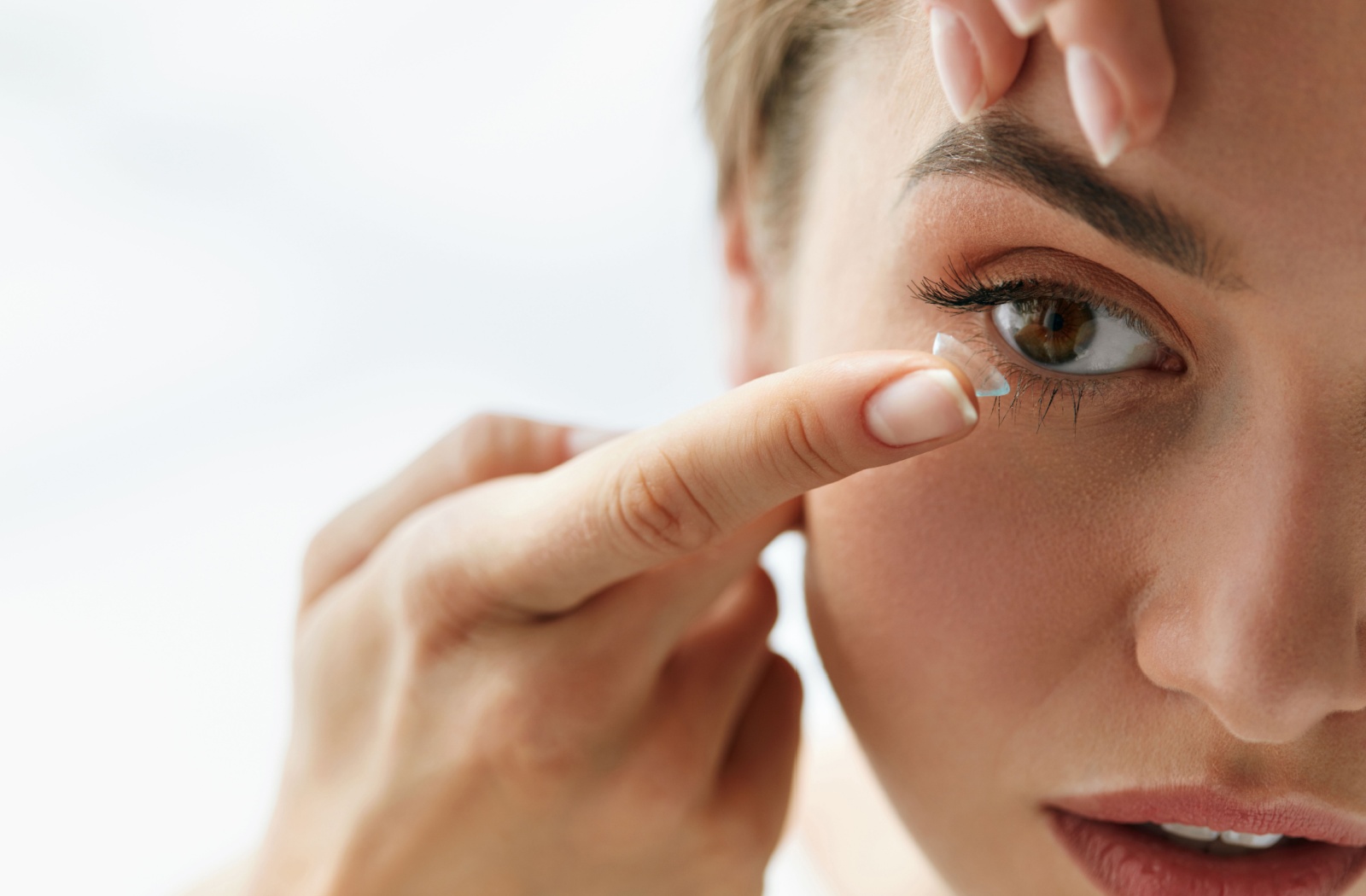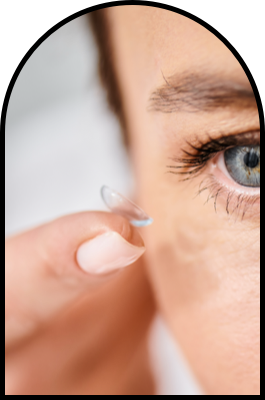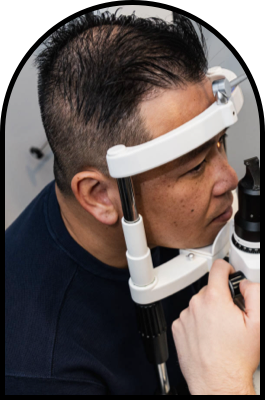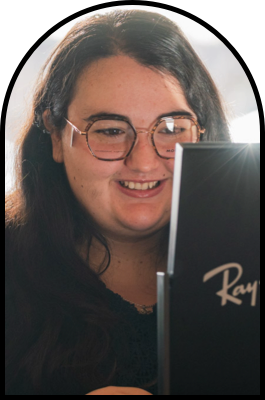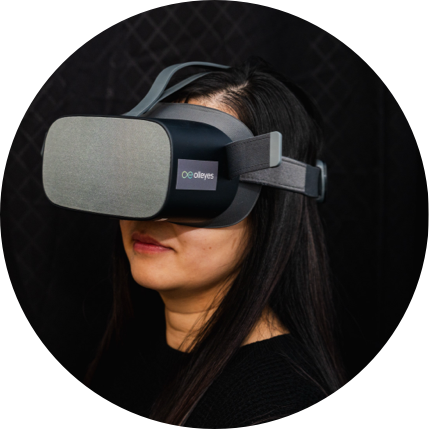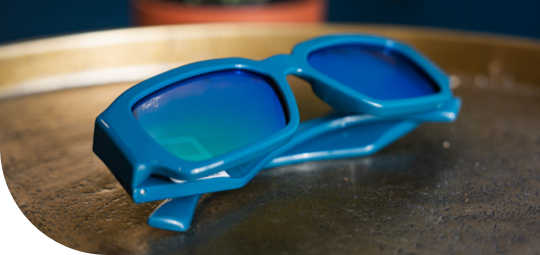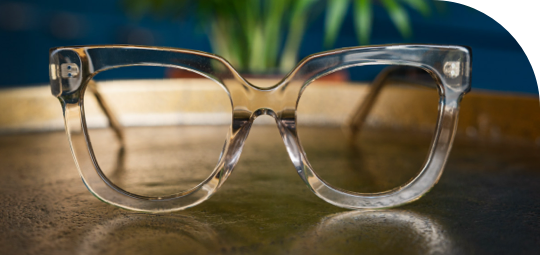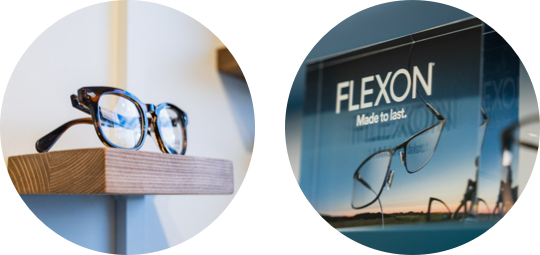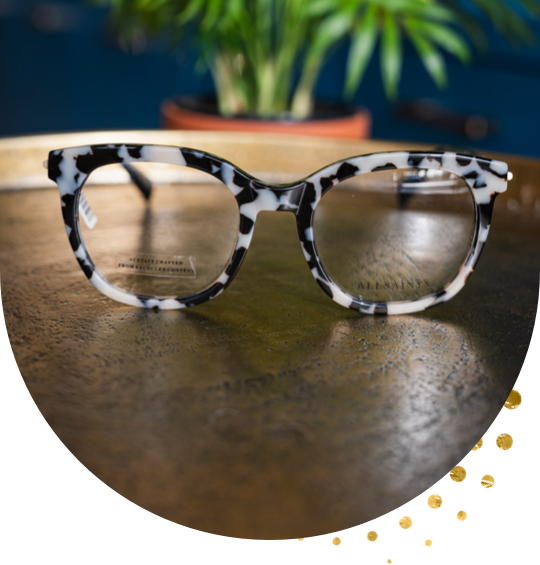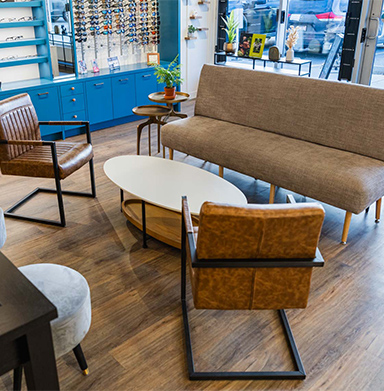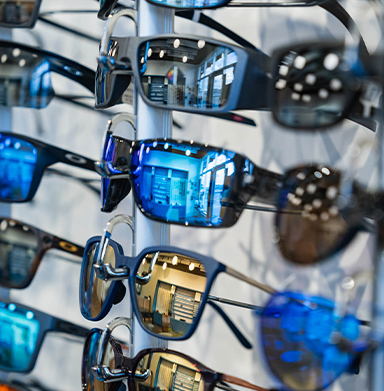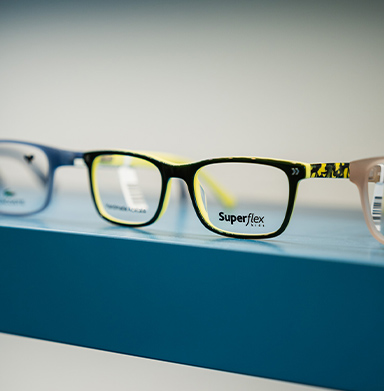Glasses have been around for a very long time to correct vision. However, instead of eyeglasses, now you can switch to contact lenses that provide vision clarity, comfort, and convenience.
Contact lenses sit directly on the eye’s front surface and work by altering how light enters the eye to provide clear vision. Just as you need a comprehensive eye exam for prescription eyeglasses, you will need a contact lens exam to determine the prescription and type of contact lenses for your vision needs.
What Are Contact Lenses?
Contact lenses are thin, curved discs made of various materials designed to rest on the cornea (clear, front surface of the eye).
Types of Contact Lenses
There are 2 main types of contact lenses, including:
- Soft contact lenses: Soft contacts are the most common type and consist of gel-like plastics called hydrogels, which allow oxygen to pass through to the cornea.
- Rigid gas permeable (RGP) contact lenses: RGPs are hard contact lenses that can provide sharp, clear vision.
Contact lenses come in different wear schedules. Daily contact lenses are thrown away at the end of the day. Weekly, bi-weekly, and monthly contact lenses are cleaned and stored.
Extended-wear contact lenses are continuous-wear contacts that can be worn during the day and night without removing or cleaning. While they are convenient, they can increase the risk of eye infections.
How Contact Lenses Work
When light enters the eye, it bends or refracts on the retina (the light-sensitive tissue at the back of the eye) to form a clear image. However, if a problem with the shape of the eye prevents light from refracting directly onto the retina, you can experience blurry vision.
Refractive errors, such as nearsightedness, farsightedness, and astigmatism, can cause blurry vision at a distance, close-up, and distorted vision. Contact lenses compensate for the irregular eye shape and help alter how light enters the eye so it focuses on the retina to provide clear vision at any distance.
Benefits of Contact Lenses
Contact lenses are more than mere vision correction—they are a lifestyle enhancement for many people with vision issues.
Convenience Over Glasses
Contact lenses free wearers from the constraints of frames, allowing for a natural, unobstructed field of vision. Wearing lenses means every glance captures the full picture, offering a seamless visual experience without the need to turn your head or peer over glasses.
Suitable for Various Eye Conditions
Beyond aiding common refractive errors like nearsightedness and farsightedness, contact lenses can also cater to those with astigmatism or presbyopia.
Common Misconceptions of Contact Lenses
There are common concerns or misconceptions surrounding contact lenses and their use. These can include:
- Contact lens discomfort: With modern advancements, discomfort is not a universal issue for lens wearers. Choosing the right type of contact lens and adjusting your wear schedule can help minimize discomfort.
- Infection risk: Proper wear and care practices can reduce the risk of eye infections. Overall, contact lenses are safe medical devices when used correctly.
- Long-term effects: Wearing contact lenses does not weaken your eyes over time. Contact lenses prescribed by your eye doctor are safe to wear.
Contact Lens Considerations
Various factors must be taken into account when considering contact lenses. Your lifestyle and daily activities can determine if contacts are the right choice for you. For example, if you lead an active lifestyle or participate in sports, contact lenses may provide more convenience and functionality, unlike glasses.
When deciding between glasses and contacts, consider your vision needs and preferences. It is important to note that not everyone is a candidate for contact lenses, and the prescriptions for glasses and contact lenses are different.
A contact lens exam is necessary for the correct prescription, and a contact lens fitting can help you find the correct fit of contact lenses for your eye shape. With a trial pair and periodic check-ins, your eye doctor can monitor how you are adjusting to your new lenses and make changes if necessary.
Where to Purchase Contact Lenses?
While buying contact lenses online seems convenient, they can pose risks, such as incorrect prescription, safety and quality issues, and no exchange or replacement privileges. Purchasing contact lenses from your eye doctor offers the following benefits:
- You receive the correct prescription based on your contact lens exam findings.
- You receive personalized recommendations based on your eye health and lifestyle.
- You receive contact lenses from high-quality brands.
- You receive ongoing support, including follow-up appointments and adjustments for optimal comfort and vision correction.
Caring for Contact Lenses
Proper lens care is essential to avoid complications and maintain clear, healthy eyesight. A contact lens cleaning routine includes:
- Washing your hands thoroughly before and after handling your contact lenses.
- Using recommended contact lens solutions only.
- Storing your contact lenses in a clean contact lens case.
- Replacing the contact lens storage case regularly.
- Replacing contact lenses based on expiry dates and wear schedules.
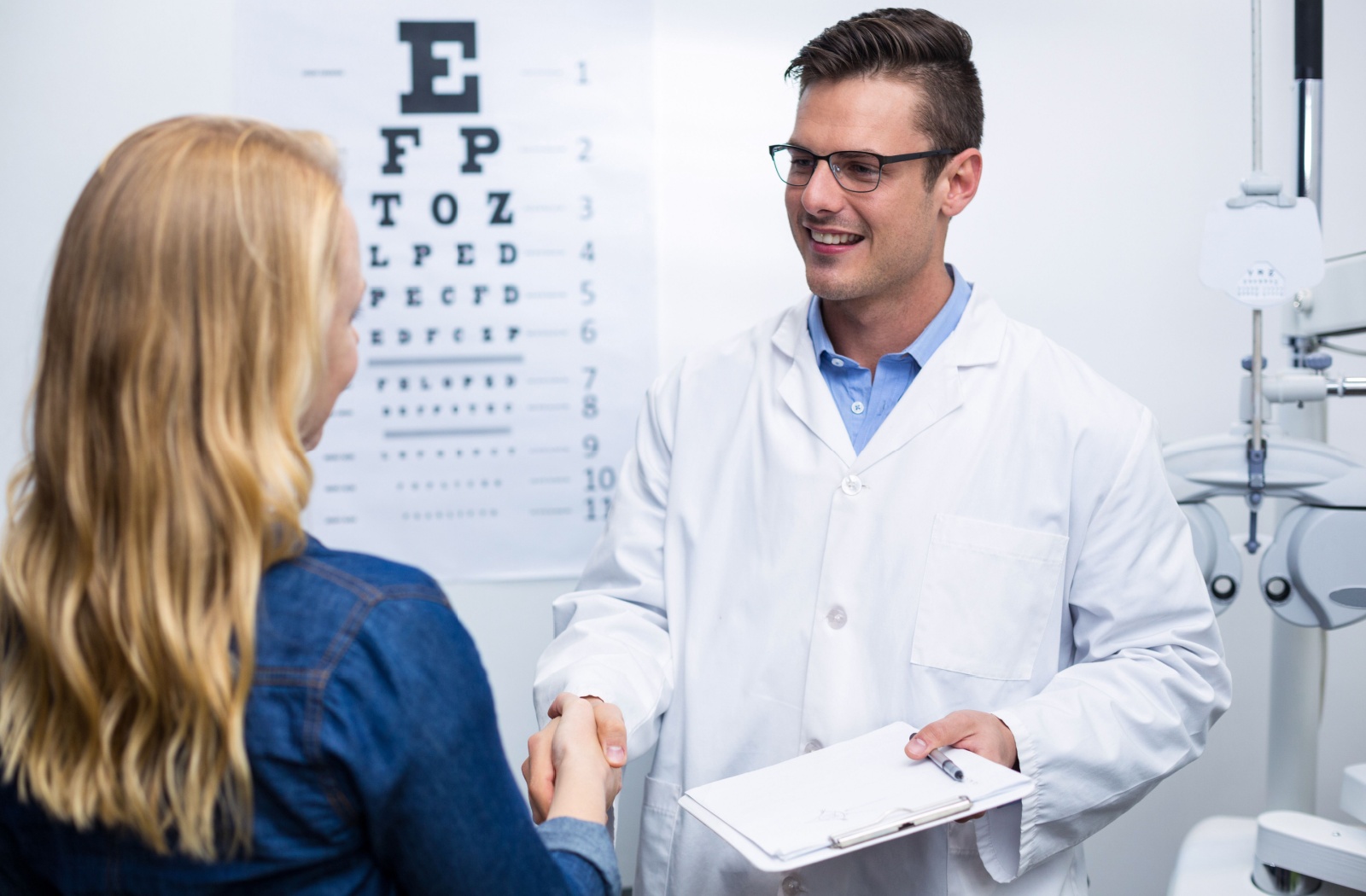
Vision Clarity with Contact Lenses
Since their invention, contact lenses have come a long way, and they continue to provide a discreet and dynamic solution for vision correction. Understanding how contact lenses work, their benefits and proper care is essential to deciding whether they are the right choice for you.
Not everyone is a candidate for contact lenses. Your eye doctor can assess your ocular health and vision needs to determine if contact lenses can provide clarity. If you are looking for prescription contact lenses at competitive prices, book an appointment with Chestermere Optometry.


